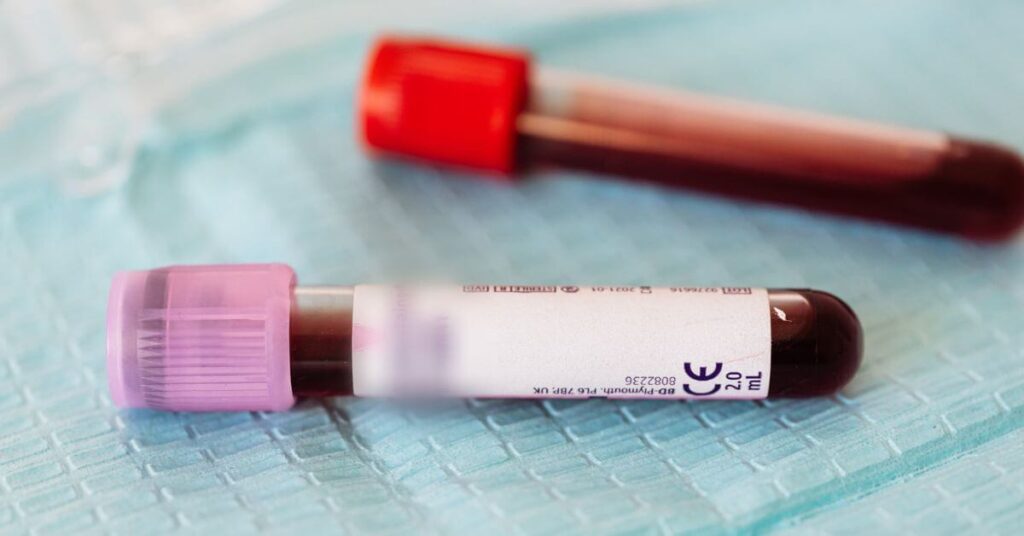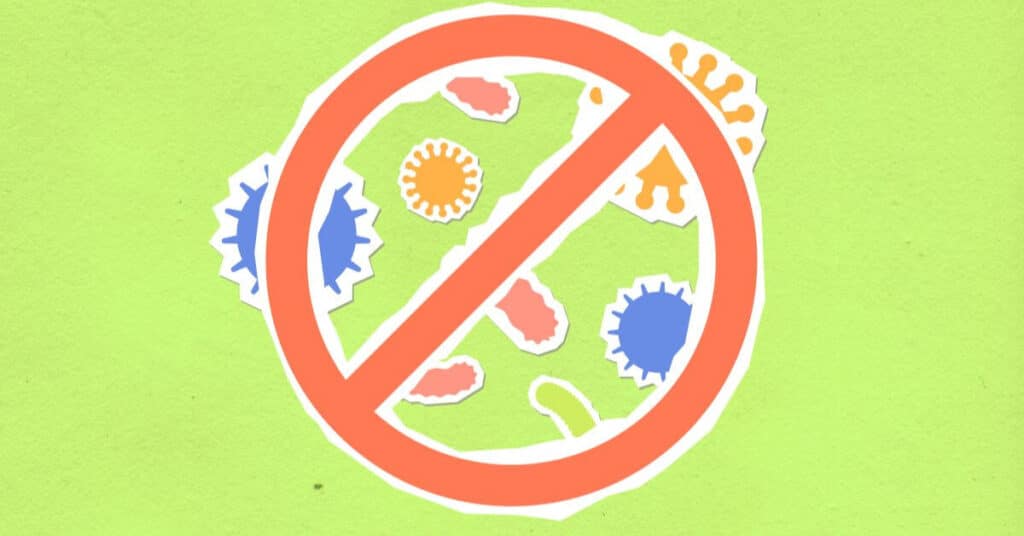How is insulin related to the digestive system? If your gut is inflamed, then the rest of your body is inflamed. It’s as simple and straightforward as that. Therefore, we want to stop gut inflammation and one route to do that is to maintain balanced blood sugar levels.
*This is a modified transcript of an episode from my podcast, The Nourished & Thriving show. This episode is titled “Hormones & Gut Health – What you need to know”, which you can find on your favorite listening platform here.
*This is not medical advice.
First things first, I’m a registered dietitian on a mission to help you increase your impact and legacy on the world while healing your gut and reducing your IBS symptoms. My goal is to inspire you to live vibrantly and provide valuable resources and information that empowers you to take bold action towards your health goals.
As a functional medicine dietitian who focuses on gut health, part of the thing I’m always working on and always thinking about is how can I help you understand how important your gut health is. I want to simplify that knowledge so it’s easy for you to put into practice and understand the benefits of focusing on your gut health – even if you don’t have major gut issues or even if you’re really young and healthy.
Investing in your health now is similar to putting money away for your retirement, right? It may feel like a little bit of an inconvenience. You may have to prioritize it over other short term, feel-good things. But remembering why your long term health is important will help you to make those decisions in the moment versus overusing that saying, “there’s always tomorrow.”

And I get that we’re in this age of instant satisfaction. Instant enjoyment. Personally, I like fast things too, and I want to see the payoff right away. But your health is a patience game where we need to play a long term strategy. It has to be really intentional. For example, if you have a hot mess gut and you’re dealing with major digestive health issues and GI symptoms every single day, that is your present and hence, that is all you care about right now. But I also want you to consider your future health. So today’s topic is gonna be along those lines, and it’s gonna be a little bit more scientific. I’ll break it down for you the best I can. If at the end, there’s something you’re still confused on, please reach out via Instagram, my website, or email.
So let’s get into how insulin is related to the digestive system, including the topic of insulin resistance and how your gut health affects your insulin and blood sugar levels.
What is insulin and why does insulin resistance matter?
Insulin is like the little escort that ushers the blood sugar into your cells. So whenever you become resistant to insulin, it’s because those cells are full of sugar already. When insulin tries to usher the blood sugar into the cells, the full cells say, “No, no, no, there’s no room here. You can’t stay here. Try somewhere else.” If you’ve ever seen the movie Forest Gump, this is similar to the bus scene on Forest’s first day of school as well – “Can’t sit here. Seats taken.” To further this analogy, poor little blood glucose is like Forest Gump trying to find his place in the world and Jenny is the insulin, his partner helping him find his place.

So insulin is trying to get the blood sugar into the blood cells, but they’re already full. This leads the cells to become resistant to that insulin. The process doesn’t work anymore. The cells “change the locks on their house.” Now in the body, one has increased blood sugar, full blood cells, and for a while your body cranks out more insulin. Your body thinks, “well, maybe if we just try more. Maybe if we just had more insulin, it will help.” But it doesn’t because those cells are full and their doors are locked… So ultimately your body just gives up – oftentimes leading to what’s seen in type two diabetes – and the body no longer produces insulin. So when this happens, you’re insulin resistant.
Why does that matter? Insulin resistance increases your risk for chronic disease – metabolic syndrome, Alzheimer’s, cancer, stroke, heart attack, etc. – which reduces your quality of life as you get older. The thing is, you can do something about it right now. It’s not out of your control. You can monitor it and manage it.

Monitoring For Insulin Resistance
So whenever you’re testing for type two diabetes, glucose levels, all of that, a really great marker to ask your doctor for is not just fasting glucose, but also fasting insulin. You’ll actually see fasting insulin spike up first before you see a rise in fasting glucose. That way you can actually find out if you are developing insulin resistance before your blood sugar goes up and potentially causes damage, and also ensure you’re not further along that progression we just discussed.
Managing Insulin Levels
Having high blood sugar is inflammatory, which means your body is in an inflamed state. The inflamed state is what can induce chronic disease. Therefore, if we manage blood sugar levels, then we manage some inflammation. Please note, there are a lot of other sources of inflammation as well, but for right now, we’re focusing on blood sugar.
How is insulin related to the digestive system?
So where does the gut and digestive system come into all of this? If you’re struggling with chronic digestive symptoms, that is a sign that your gut is not working properly and these things that I’m about to talk about are probably happening – and if they’re not, they will in the future. And if you are a person who really cares about their quality of life in the long term, this matters for you too.
Three Ways Gut Health and the Digestive System Affect Insulin Resistance

1. Increase Dietary Fiber
We need to be eating lots of fiber, because dietary fiber feeds our good tummy bugs (aka the microbes that do beneficial things for us). I always teach my kids we have to feed our good tummy bugs. They’re almost like little pets for us. If it helps you to think of them this way too, then please do it! You see, fiber helps to reduce gastric emptying and stomach emptying, so you’re staying fuller longer. Additionally, it reduces how many carbohydrates you’re absorbing in your small intestine, which can have a positive effect on your blood sugar. But feeding the tummy bugs is important too and can further affect your blood sugar. It’s related to my second point…
2. Short Chain Fatty Acids (SCFA)
Short chain fatty acids (SCFA) are actually made by those good tummy bugs we just talked about. This can give you an inkling into how these are connected… As we increase our fiber intake, we feed those good tummy bugs, and in turn, those good tummy bugs make short chain fatty acids. SCFA help to increase the mucosal lining of your gut, which helps to create resilience and reduces leaky gut. Think of this reinforced mucosal lining like a cushy padding inside of your gut that protects it from any enemies or elements. Furthermore, the short chain fatty acids also have been shown to help balance blood sugar and directly reduce inflammation in the gut!

3. Dysbiosis or Gut Imbalance
On the flip side, if you’re not eating fiber and the good tummy bugs aren’t being fed and so you aren’t producing SCFAs, then you’re at risk of developing dysbiosis or an imbalance of the good and bad tummy bugs. Bad tummy bugs are not necessarily causing harm under normal conditions, but whenever they’re given the opportunity to overgrow, things go wrong. For example LPS, which stands for lipopolysaccharide, comes from microorganisms in your gut, and LPS is considered to be one of the main causes of low-grade inflammation seen in obesity or type two diabetes. And as we already talked about, inflammation causes long-term chronic diseases. Focusing on a healthy gut can improve dysbiosis and in turn, inflammation.

Reducing Inflammation in the Digestive System
So that’s how insulin is related to the digestive system – which really begs the question: how can we work to reduce inflammation in our digestive systems? The answer is really quite simple: work to improve your gut health. What is one action you can take today that will help to improve your gut health? Some examples include chewing your food 30 times per bite, consistent meal timing, or taking deep breaths before you eat. If you think you have a lot of work to do on your gut health and/or are struggling with identifying your starting point – particularly if you are suffer from chronic GI issues – sign up for a call with me to talk about how we can partner and work together to improve your gut health or watch my free digestive training guide with symptom tracker to get started.


